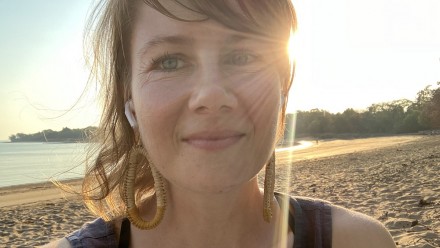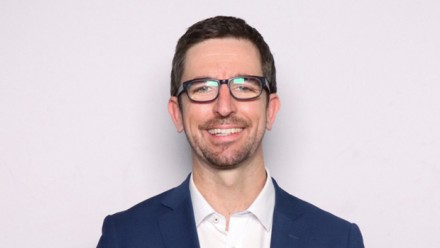Educating for emergencies
Dr Nick Taylor entered medical school as a naive 17 year old. “I really had no idea what I wanted to do, but when I tried the teenager’s version of self-reflection, I realised that I liked helping people.” From those inauspicious beginnings as a member of the last group of University of Queensland undergraduate medical students, Nick’s career has taken him around the world, into cyberspace and finally, to the ANU, where he is Associate Dean (Teaching and Learning) for the Medical School.
As someone with a short attention span and a wide variety of interests, Nick always knew he’d be a generalist doctor but it was the unpredictability and teamwork of emergency medicine that drew him in. “I hate to be a stereotype, but I love outdoor adventure sports and I love the controlled chaos of the emergency department,” he jokes.
One of the most important aspects of the emergency department to Nick, is its commitment to providing free care to all patients regardless of their background or circumstances. Emergency Medicine is a challenging career, “We are usually looking after patients on the worst day of their lives,” Nick reflects, “but it’s that constant challenge which provides satisfaction at work and an ongoing need to learn and improve.”
“Being a generalist, I have to try and stay up to date with the acute treatment of nearly every medical subspecialty,” and it was this lifelong commitment to learning that led Nick to his passion for medical education.
As Senior Specialist and co-Director of Emergency Medicine Training at the busy Canberra Hospital Emergency Department (ED), Nick has had to innovate to attempt to capture the educational needs of busy shift workers.
He has designed and administrates three free online educational websites. “I needed to find a way for learners to access educational material in their own time, on any device and with the capacity to ask questions and receive feedback like in a face to face setting.” It started with Time Critical Medical Education which Nick developed to host his educational approach of simplifying pathophysiological principles to provide a base for understanding and now includes canberraemergency for Canberra’s EDs and srilankaemergency – the first free medical education website for that country.
Recently Nick’s work has taken him to Sri Lanka, where he spent six months volunteering to help Emergency Medicine develop as a specialty. Post-tsunami, the Sri Lankan government committed to establish a system for emergency medicine and pre-hospital care. “They are about to see the benefit of 10 years of planning,” Nick says, “at Canberra Hospital ED we have six Sri Lankan doctors working with us who will soon return as the first Emergency Medicine Specialists for their country.”
The mentoring process has proven to be a career highlight. “Helping students and doctors maximise their potential is the most rewarding aspect of my roles, and now being involved in the ANU Medical School gives me a privileged opportunity to help our future medical leaders.” This doesn’t seem too far away from what led him to medicine in the first place.

















